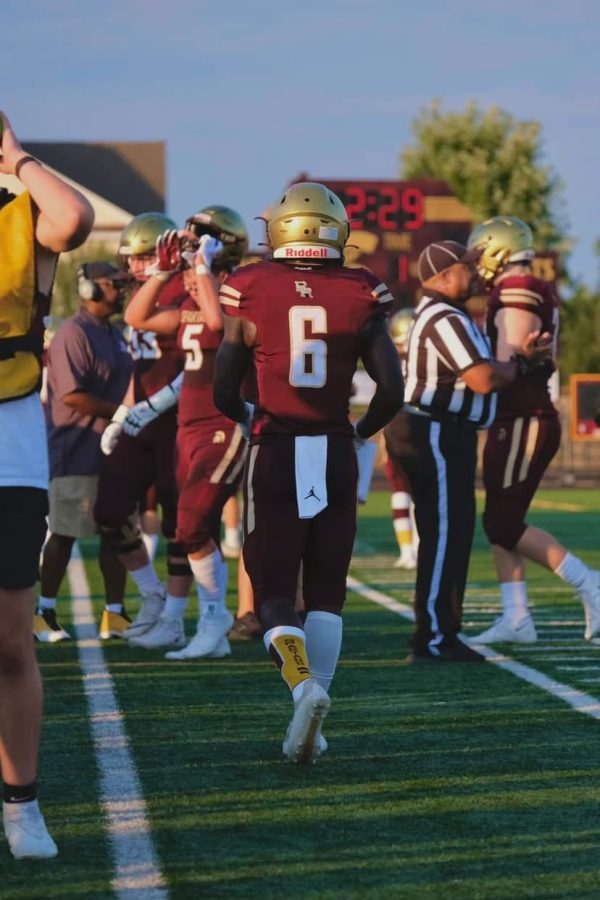Prologue: The Nefarious Senioritis
Senioritis, am I right? The second half of our senior year is often plagued by it, making it practically the main villain of the high school series finale. But what if this villain wasn’t just evil, but also as much of a learning experience as the bad guys are for our favorite media heroes? Senioritis is a real curse, but maybe it could make us into just as valiant of people as the characters we know and love.
Episode One: Preparing For Adventure
The beginning of the year arrives, and the guidance meetings start. Whether it be college, trades, or any other of the options we have after high school, it’ll be a far cry from the world we’re used to. “Toto, I have a feeling we’re not in Broad Run anymore,” said Dorothy in The Wizard of Oz (give or take a couple words) =. And just like Dorothy was swept up by a tornado into an unknown land, seniors are swept up by the path to the great unknown. And while we’re off to see the wonderful wizard of college, we’re forced to plan for somewhere over the rainbow to a new phase of life that we’ve only heard of once in a lullaby.
That can get paralyzing, which is senioritis’s opportunity to creepily whisper in your ear for you to give up. But realizing that uncertainty doesn’t mean you have the right to quit is all part of the hurdle we need to jump through as seniors. We need to set our eyes not on the future we’re scared of but on the future we want to make. Fearing that where we’re going won’t be what we want is only going to hinder us from reaching our goals. After all, we’ll never make it to the Emerald City if we’re always scared it’ll be made of straw.
Episode Two: an Endless Journey
“Every day feels like the same one over and over again.” We seniors love that line. But one man from a piece of fiction, albeit a less serious one, truly lived this time loop like no other. It’s no epic quest , but in the 1993 comedy Groundhog Day, Phil Connors mysteriously gets condemned to live out Groudhog Day over and over in Punxsutawney, Pennsylvania. As a result, he deemed trying at all to be pointless. Many seniors after college acceptances also assess effort in school to be unimportant, like doing more than the bare minimum is useless. But in a reverse of Phil’s situation, this lack of direction is what causes the constant, looming deja vu. Of course this feeling is frustrating and feeds its own demoralization. A similar thing happens in Groundhog Day when Phil starts believing his actions are meaningless in the timeloop and starts acting recklessly and indulgently. However, this only fuels his own sense of hopelessness by, in this case literally, reinforcing the belief that whatever he does is useless.
Many seniors do a similar thing. We stop putting in the effort that we once did because it ‘doesn’t matter,’ but when we check the our declining gradebooks, we often accept that it’s unchangeable. But eventually, we start to realize that having no goals, no initiative, and no change are what’s driving that feeling of every day being the same. Phil only escapes his timeloop purgatory in Groundhog Day by growing to change his cynical view of the little town of Punxsutawney that he once viewed as uncivilized. In the same way, seniors eventually start to learn that it feels bad to never make progress.
Episode Three: The Final Stretch
In the book that invented half of modern high fantasy, Lord of the Rings, our valiant hero Frodo is constantly tempted by the titular ring’s power. On his journey to destroy the cursed artifact, he almost gives in many times (or to draw a comparison, we all go through slumps in school). However, the greatest challenge for Frodo’s will was the final climb up Mount Doom. In other words, his last semester. Senior year’s second half is weirdly enough treated like a giant climb up a mountain, despite being a hopeful hair’s width away from the end of high school. But like that fiery mountain, the closer we get to the end, the more tempting surrender to slacking off becomes. Although our temptation isn’t fueled by a mystical piece of jewelery, the end being so close that you can smell the sulfur coming off the lava brings about a certain permissiveness to act like you’re there already. We almost get too hopeful in our longing for that final stretch to be over after three-and-a-half exhausting years to a point where go into relaxation mode.
But where many seniors initially fail, Frodo sets an example to follow: treat the end as seriously as the beginning and follow through with what you started. For us, it’s not about when it’ll be over. It’s about standing on business and following through from beginning to end with the same attitude. That’s what seeing those dreaded interims shows—the need to follow through. That’s what our senioritis shows—the need for consistent effort.
Epilogue: The Prize of it All
Senioritis, the terrifying last villain of high school, seems like it’s only a barrier to happiness. It feels like the wills of uncertainty, hesitation, and noncommitment are all closing in on you. But through our battles as against senioritis, we learn how to face similar foes in the future. From the fear of a strange future to the feeling that everything is pointless to the urge to relax before our jobs are done, senioritis has put us through a shocking amount of trials. But the solution to all of them is clear. Not just seniors, but people of all ages should keep moving forward towards their goals, using it to motivate their work in the present. I guess you could say, “Keep your eyes on the prize,” as an example, and all of the heroes talked about here demonstrate it. Dorothy got through all of the challenges posed by the Wicked Witch of the West by keeping her eyes on the Emerald City and getting home. Phil Connors got out of his time loop by growing and changing. Frodo focused on destroying the ring for the greater good of the world. And you’ll focus on whatever you have after high school to motivate yourself right now. And all this because you learned from the mistakes of your senioritis.































